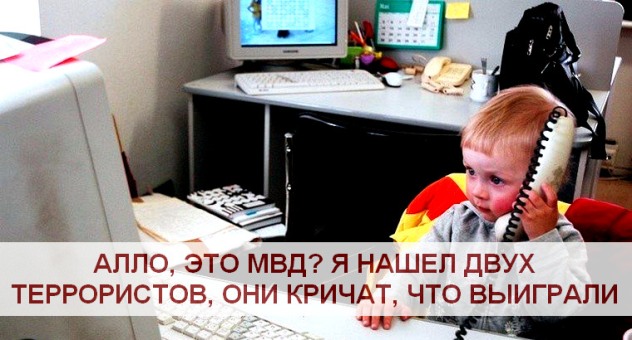Discussion of the Big Brother bill continues in Moldova (written Jan 22, 2018. The bill provides law enforcement authorities with new powers in order to ensure information security and counter cybercrime. The Prosecutor General of the Republic of Moldova, Eduard Harunzhen, gave an exclusive interview to Digital.Report, in which he spoke about the stance of the bill’s authors and the relevance of the bill, as well as whether citizens should be afraid of unreasonable electronic surveillance and eavesdropping.
– How did the Big Brother bill appear in Moldova and what is its purpose? Does it, in your opinion, contain enough guarantees that the rights of citizens will be respected when implemented in practice?
“In Moldova, as in other countries, information technologies are actively being introduced into economic, social and other spheres of activity. And this process is accompanied by the development of a crime phenomenon, the spread of crime into cyberspace. In recent years, electronic information and computer networks have become much more frequently used for criminal purposes. Materials that could serve as evidence of this activity are stored and transmitted by criminals through these same networks.
In this regard, efforts to prevent and combat crime in cyberspace have become a priority in the process enforcing the rule of law. We can not ignore the current threats to information security or neglect the continuous process of developing and improving technology, not to mention the fact that the country is on the way to European integration and the development of standards for the rule of law.
In February 2009, the Moldovan Parliament approved a law that ratified the Council of Europe Convention on Cybercrime, adopted in Budapest on November 23, 2001. Thus, the country accepted the obligation to comply with international standards and recommendations in this area, as well as to improve national legislation. In this context, the Prosecutor General’s Office, together with the Ministry of the Interior, drafted Act No. 161, later called Big Brother. Its main purpose is to bring the Moldovan laws in line with the standards established by the Convention on Cybercrime.
This bill provides for electronic searches, interception of information data, and other similar measures that are applied in European countries and elsewhere. These measures are not considered as entailing any risk of violating privacy rights. Such interventions are permissible only if necessary, in circumstances strictly defined by the threats, for cases of the most serious crimes. Such actions are accompanied by guarantees of fundamental human rights and freedoms. These mechanisms are included in Big Brother.
The draft law was sent for examination to the Venice Commission and the Directorate General for Human Rights and the Rule of Law of the Council of Europe. In December 2016, they announced their findings. They noted that the provisions of the draft are appropriately tied to the provisions of other legislative procedures under consideration. In addition, the proposed amendments will improve Moldovan legislation and further promote the application of European standards.”
– To what extent is this legislative initiative relevant for Moldova, and will it allow law enforcement bodies and state security to more effectively counter cybercrimes?
“The proposed legislative changes are not only timely, but also necessary, and without delay. The development of information technology makes its adjustments to the activities and tasks of law enforcement agencies. Modern technologies bring us, benefits, and in parallel with this they create the possibility for the emergence and spread of cybercrimes.
The bill is designed to ensure effective investigation and disclosure of the most serious forms of crimes, including elements of organized transnational crime. Law enforcement authorities need to have the capacity to collect evidence in the information space, the capacity for seizure and storage. In addition, the modernization of the state through the development of the capabilities of authorized bodies to ensure information security is an integral part of the efforts for European integration. This law brings national laws in line with European standards, and also forms a general framework for international legal cooperation between states in the investigation of cybercrime.”
– Are there nevertheless, in your opinion, any risks of violation of the rights of internet users? Is it possible to adopt the bill in its current form or does it need some improvements?
“I would like to note that the initial draft has been finalized. Certain amendments were made to it, which led to the improvement of its provisions. The Venice Commission of the Council of Europe concluded that, essentially, these changes reflect the efforts of the Moldovan authorities to improve the provisions of the law so that its norms will become more precise and clear.
The need to promote the Big Brother draft law is obvious and, in my opinion, cannot be challenged. This was also mentioned at an international conference organized at the initiative of the Venice Commission last autumn in Chisinau.
It is very important for this project to guarantee the respect of citizens’ freedoms rights. And here I am referring not only to people suspected of or charged with committing criminal acts, for whom the provisions of this law may be applied. I also mean those who are victims of crimes done using IT technologies; they are often children. For some reason, in public discussions about the rights and freedoms of citizens, children are often forgotten, but their rights are also guaranteed by the Constitution and are protected by the state. In its ideal form, the bill must ensure the balance of these categories of values.”
– How do you feel about the position of a number of national experts and non-governmental organizations, which argue that the adoption of the bill in its present form will lead to abuse and violations of rights? Dissatisfaction was also expressed by representatives of business in the field of telecommunications, which will have to incur considerable costs and carry out additional measures for the technical support of the new requirements.
“Indeed, this draft law faces constant resistance. I will be honest and call things by their proper names. Resistance is felt, above all, by companies providing services in the electronic communications market, which were constantly invited to public consultations. I think this reaction is natural. After all, we are talking about a business that gains considerable material profits, and any restriction can affect these interests. This we can all understand.
The position expressed by some representatives of civil society, both in the media, and within the framework of interdepartmental meetings, to which they were invited for discussions, is less clear. Undoubtedly, in the process of developing, adopting and implementing laws, the involvement of civil society is democratic and correct. Their positions and voices are heard, but, unfortunately, not all proposals can be taken into consideration and implemented in practice.”
– According to the study of the Legal Resources Center, in Moldova, telephone conversations are listened to 38 times more often than in the UK. At the same time, it is concluded that the adoption of the law Big Brother will allow this to be done even more, increasing the risk of abuse and violation. What is your position on this matter? Is it warranted for the citizens of Moldova to fear unreasonable electronic surveillance and “wiretapping”?
“You refer to a study conducted and published by a representative of one of the non-governmental organizations on the situation with telephone tapping. The author of the study, in particular, compared the situation in Moldova with the situation in the UK. The situation in our republic is regarded as “particularly disturbing”. It is alleged that the proposed bill will worsen it even more.
First of all, I must say that these declarations have nothing to do with the bill under discussion. In the Republic of Moldova, as in all countries, the mechanism for listening to telephone conversations has long been one of the procedural measures regulated by law. Its purpose is to uncover crimes and bring criminals to responsibility. These actions are impossible without justified reasoning and can be carried out only in cases strictly prescribed by law.
The listening mechanism is a complex and technologically labor-intensive process that requires a lot of time, resources and personnel.
Thus, the law clearly prescribes that such actions are committed only when investigating grave, especially grave and extremely serious crimes. It would be more correct and professional if the author of the study studied the statistics of these categories of crimes committed in the territory of Moldova. The number of such crimes registered in the country is significant, and this occurs regardless of the will of law enforcement agencies. And they are obliged to use any lawful methods to uncover socially dangerous acts and protect citizens from crime.
Moreover, the listening mechanism is a complex and technologically labor-intensive process that requires a lot of time, resources and personnel. I want to assure you that no one in Moldova is listened in on just to listen. Society expects us to uncover crimes and bring those responsible to justice, and as long as this measure is applied in law enforcement and gives results, it will be used.
In addition, it seems to me somewhat inappropriate to compare the situation in Moldova with the situation in the UK — a country with a high level of security, including constant video monitoring. It is known that a resident of London gets into the lens of video cameras on average up to 300 times a day. Often cameras capture some quite intimate scenes from people’s lives, but this fact does not seem to bother the population. Public opinion polls in London show that citizens are able to tolerate it: in their opinion, this is better than being in the epicenter of tragic events.
In conclusion, I would like to note that each state, in ensuring national security, must independently assess the risks to which it is exposed, and create its own mechanisms to confront these risks.”
Translated from Digital Report (https://digital.report/generalnyiy-prokuror-moldovyi-segodnya-usiliya-po-borbe-s-kiberprestupnostyu-stali-prioritetom/)




Reply